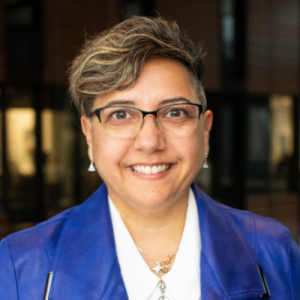12 “The Positive Feelings That Writing Brings Me”: A Critical Language Awareness (CLA) Writing Assignment
Sheila Batacharya and Phuong Minh Tran
Context and Purpose of the Writing Assignment
Professional English Language Skills (PELS) is an asynchronous writing development program at University of Toronto Mississauga (UTM). The PELS program seeks to address the linguistic and cultural needs of diverse students on campus and advance Equity, Diversity, and Inclusion (EDI) principles. This essay discusses the final writing task in PELS, “Module 8 Written Reflection Assignment” (see Appendix). This assignment asks students to read an article by Samantha Looker (2016), in which she explores the concept of language diversity and Students’ Right to Their Own Language (SRTOL) (Conference on College Composition and Communication, 1974; Looker, 2016, p. 176). The assignment then asks students to briefly summarize the article and reflect on their learning experiences in PELS.
The Language Awareness (LA) and Critical Language Awareness (CLA) Frameworks
In previous work conducted with research ethics board approval (Tran & Batacharya, 2023), we analyzed Module 8 writing samples using a Critical Language Awareness (CLA) framework (Shapiro, 2022). This framework allowed us to assess whether PELS curricular interventions were effective and fostered students’ Language Awareness (LA) and/or their CLA. LA refers to “explicit knowledge about language, and conscious perception and sensitivity in language learning, language teaching and language use” (Association for Language Awareness, as cited in Shapiro, 2022, p. 29). Furthermore, LA implies that students should notice and comprehend the form, function, and use of language to become better language users. CLA indicates knowledge of “the intersections of language, identity, power, and privilege, with the goal of promoting self-reflection, social justice, and rhetorical agency” (Shapiro, 2022, p. 55). In other words, CLA captures students’ ability to understand and be critical of the politics of language, but also to know how adapting their own language practices to their contexts will benefit them.
Analysis of Student Responses to the Module 8 Assignment
Our analysis of Module 8 writing samples reveals that participants experienced and overcame writing struggles, reflecting growing Language Awareness (LA). One international student remarked, “My first language is not English, so sometimes it is more difficult to write academic papers” (Tran & Batacharya, 2023, section 4.1). Similarly, a domestic student explained: “Being born in Canada, I still struggle with academic writing” (Tran & Batacharya, 2023, section 4.1). Overall, students noted that PELS helps them address challenges effectively. Another international student explained that the course increases students’ understanding of academic writing conventions and builds confidence: “As I become more proficient at applying the rules of writing, I believe that the positive feelings that writing brings me will become even richer” (Tran & Batacharya, 2023, section 4.1).
Multiple students demonstrated greater awareness of academic writing expectations and of their sociopolitical currency and value, thus reflecting their growing Critical Language Awareness (CLA). As one domestic student wrote, “we can find language ideologies in academic writing, therefore it is important to look back and understand where the expectations came from and how to manage those expectations” (Tran & Batacharya, 2023, section 4.2). Students importantly used descriptive terms instead of evaluative terms to discuss standardized language, thus showing that they challenged the privileging of standard English. For example, a domestic immigrant student wrote: “[PELS] encourage students to come up with their own ways of using words and sentences, with an emphasis on the ‘recommended’ method for a standard writing assignment, and the standard expectations” (Tran & Batacharya, 2023, section 4.2). In addition, one international student highlighted the academic cultural influence and value of English varieties (such as Global Englishes, spoken in different parts of the world): “The variety of language in academic writing also plays an important role in cultural spread and exchange” (Tran & Batacharya, 2023, section 4.2). This finding indicates that students understand language hierarchies and the tension surrounding language variations (Godley & Minnici, 2008), thus demonstrating their growth in CLA.
Discussion
Our study indicates that students acquired both LA and CLA to a varying extent (Tran & Batacharya, 2023). Furthermore, their written reflections convey nuanced understandings about how standard English is privileged and rewarded, and they seek the benefits of using academic writing conventions to write more effectively. However, students also recognize the legitimacy and cultural value of other English varieties, and they appreciate engaging with linguistic and cultural diversity, thus learning about sociolinguistics (how language interacts with social structures) and linguistic equity and inclusion. In other words, our study findings show that PELS’s approach to English language and writing development reflects “a dual commitment to pragmatism and progressivism” (Shapiro, 2022, p. 281) while fostering students’ success and expanding their understanding of language in relation to power.
Conclusion
To sum up, the Module 8 Assignment asked students to consider language through a sociolinguistic lens and simultaneously reflect on PELS. By reading a text about linguistic diversity (Looker, 2016) as they work on this assignment, students acquire metacognitive knowledge about writing and language. In other words, students learn how to write for a particular context and make informed choices about the writing conventions in academic college writing. Specifically, our study indicates that students increased their competency in writing conventions “while also acknowledging the socially constructed, pragmatic, and innovative elements of language use” in a critical and empowering way (Tran & Batacharya, 2023, section 5).
References
Conference on College Composition and Communication. (1974). Students’ right to their own language [Special issue]. College Composition and Communication, 25(3). https://cdn.ncte.org/nctefiles/groups/cccc/newsrtol.pdf
Godley, A. J., & Minnici, A. (2008). Critical language pedagogy in an urban high school English class. Urban Education, 43(3), 319–346. https://doi.org/10.1177/0042085907311801
Looker, S. (2016). Writing about language: Studying language diversity with first-year writers. Teaching English in the Two-year College, 44(2), 176–198.
Tran, P. M., & Batacharya, S. (2023). Using CLA pedagogy to examine an asynchronous supplemental English for academic writing program: Curriculum design and pilot results. Journal of Second Language Writing, 60(101020), 1–13. https://doi.org/10.1016/j.jslw.2023.101020
Shapiro, S. (2022). Cultivating critical language awareness in the writing classroom. Routledge, Taylor & Francis Group.
Appendix
PELS Module 8 Written Reflection Assignment Description
For this assignment you will write a reflection paper to discuss how the content of Looker’s (2016) article has affected your ideas about language learning and academic writing.
Looker, S. (2016). Writing about language: Studying language diversity with first-year writers. Teaching English in the Two-year College, 44(2) 176–198.
What is reflective writing? Reflective Writing requires “the ability to think about and critically analyze experiences to improve understanding” (RGASC, n.d.).
In this assignment you will describe and examine your experience of reading the article by Samantha Looker (2016). Instructions:
1. Describe and assess the article by Samantha Looker (2016).
2. Explain connections between the article and a PELS course concept or theme.
3. Discuss the relevance of the article with respect to a PELS concept or theme.
4. Conclude your reflection by connecting the article to your future studies or a personal experience. This last step is critical in Reflective Writing as it provides an opportunity for you to explain the learning that occurred for you.
Source used in the design of this assignment: Robert Gillespie Academic Skills Centre (RGASC), University of Toronto Mississauga. (n.d.). Fundamentals of reflective practice (reflective writing).
About the authors
Sheila Batacharya
University of Toronto Mississauga

Dr. Sheila Batacharya (she/her) is an Assistant Professor, Teaching Stream in Writing Studies at the Institute for the Study of University Pedagogy (ISUP), University of Toronto Mississauga. Sheila’s academic work in Women and Gender Studies, Sociology and Equity Studies, Adult Education, and Applied Linguistics provides an interdisciplinary foundation for her teaching and research. Her publications include two co-edited volumes, Reena Virk: Critical Perspectives on a Canadian Murder (2010) and Sharing Breath: Embodied Learning and Decolonization (2018), and she presented Watershed Memory, Drainpipe Story (2018) at The Work of Wind Air Land Sea, Blackwood Gallery, University of Toronto Mississauga. Sheila’s most recent publication is titled “Using Critical Language Awareness Pedagogy to Examine an Asynchronous Supplemental English for Academic Writing Program,” in the Journal of Second Language Writing (Tran & Batacharya, 2023), and she is the recipient of the 2024 ISUP Faculty Teaching Excellence Award.
Phuong Minh Tran
Embry-Riddle Aeronautical University, Daytona Beach, Florida

Dr. Phuong Minh Tran (she/her) is an Assistant Professor of Humanities and Composition at Embry-Riddle Aeronautical University (ERAU), Daytona Beach, Florida, USA. Her research revolves around issues of intercultural competence in writing studies, transnational composition pedagogies, second language writing, and critical language awareness. She has published in the Journal of World Englishes, TESOL Journal, Writing and Pedagogy, Journal of Second Language Writing, and Written Communication as well as edited collections on composition studies. At ERAU, Phuong teaches academic courses on first-year writing, multilingual writing, and intercultural writing and research.

